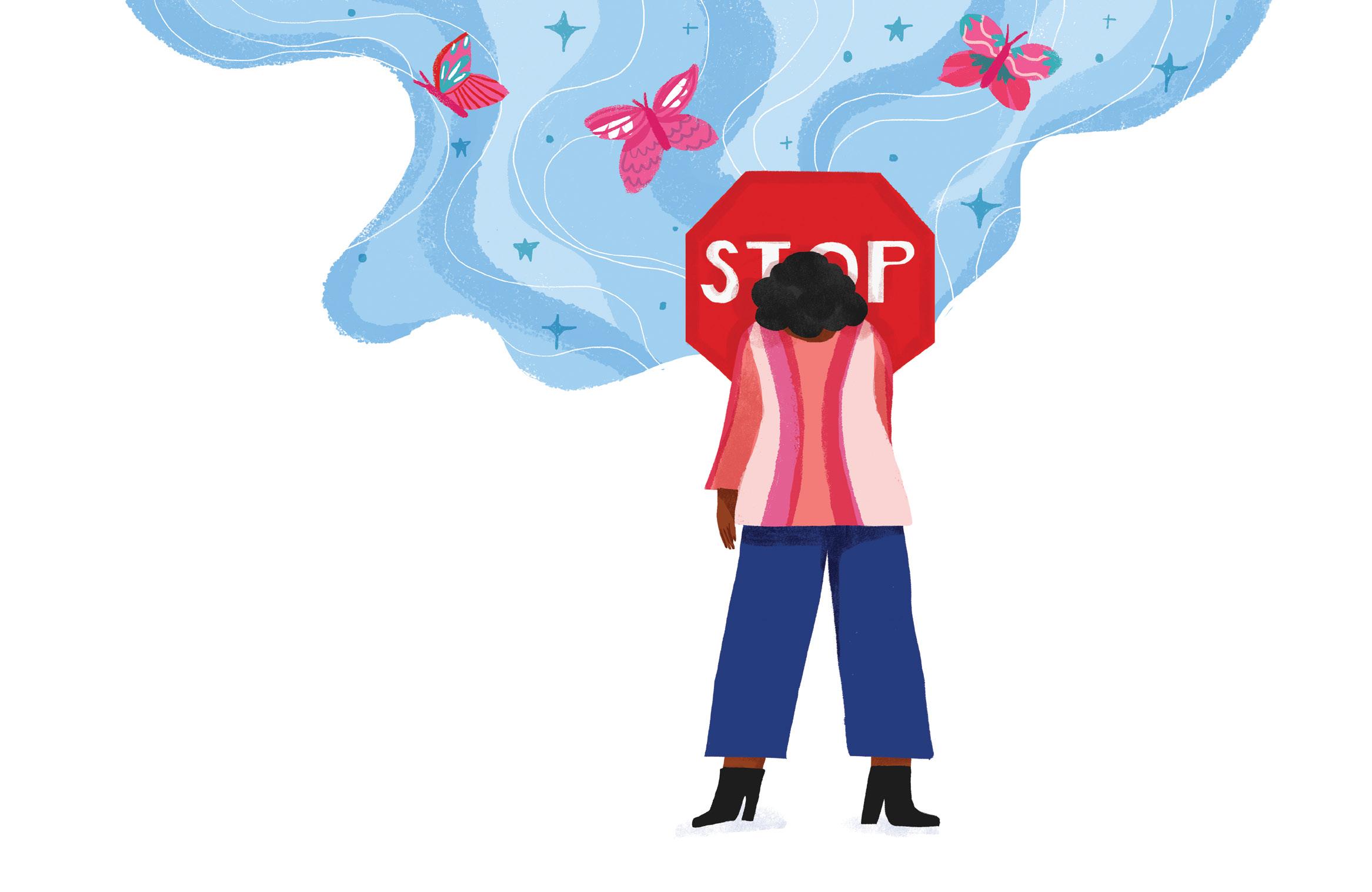
1 minute read
Master the Moment
The STOP practice can help whenever you’re feeling distress, creating space to observe and tame your feelings, and to access the deeper resources within you. It helps you develop the emotional intelligence and psychological flexibility required for greater mastery over the challenging moments.
There will be days when the STOP practice saves you. It is especially helpful if you need support to move through intense feelings so that you can note them and set them aside for the moment, with the intention of reflecting on them more deeply later. During a recent interview, I guided the questioner through the practice after I found myself sharing with her a recent incident of racial violence that she had not yet heard about. Afterward, we both got back on track with greater groundedness.
Advertisement
As we practice the STOP with others, we look deeply within while allowing space to be present with the other. We listen without becoming triggered by holding on to words tightly. We learn to be present to emotions, in ourselves and in others, without reactive judgment. With this practice, we remain close to our experience as we stay engaged. We get granular and we move from one moment to the next with awareness. We breathe in and out of that awareness, and after completing the practice, invite reflection on the incident as a whole, which can promote even further growth.
Reactivity is part of what it means to be a human being. The question is this: How do we meet our reactivity without judgment, and with the intention of transforming it into effective responsiveness in our everyday lives?
We do it by practicing mindfulness as if our very lives depended on it, as Jon KabatZinn says. Because in a very real sense, they do. More and more, our lives depend on our capacity for deep engagement with socially distant others. Engaging in conversations like these is difficult. The capacity to be lovingly engaged but not attached to particular outcomes, to keep coming back for more, to see the wholeness that can handle this moment of illusory disconnect, that one, and the next, is a complete and deep mindfulness practice in and of itself. ●








